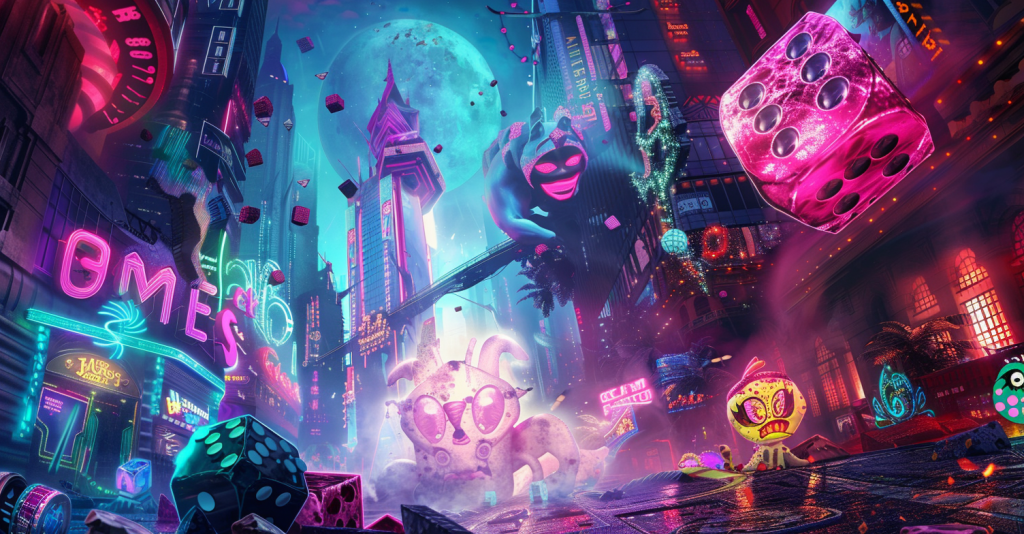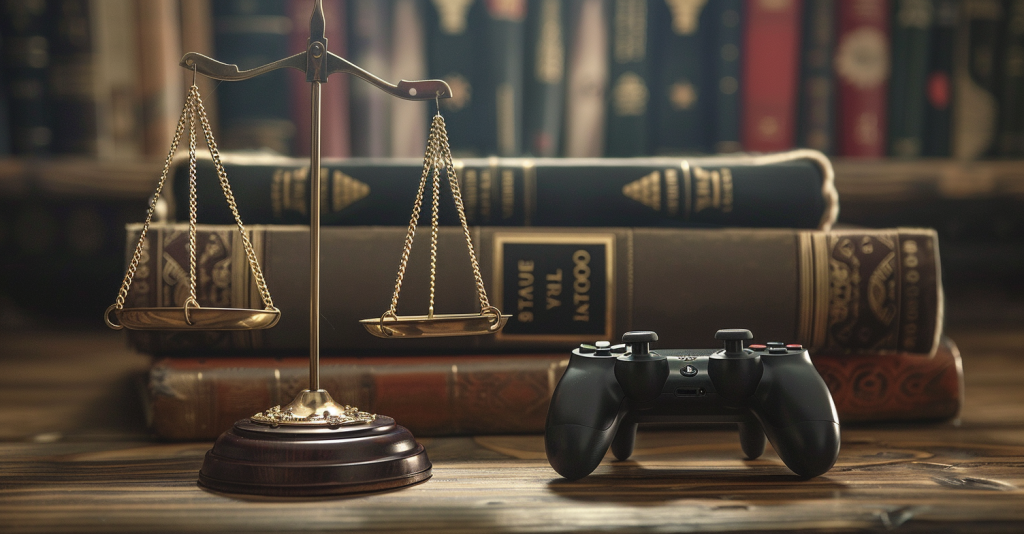The Intersection of Games and Law: Exploring Legal Themes in Gaming
Blog Jeremy Patterson 10 Apr , 2024 0

Gaming has gone from being a niche market to a popular powerhouse in the past few years, winning over millions of people all over the world. That being said, great power comes with great duty, and there will be times when you have to deal with the law. It’s become very interesting to study how games and law relate to each other. It gives us a new way to look at bigger societal problems, regulatory issues, and how digital innovations affect standard legal systems. But what does this junction look like? Also, why is it important for both games and lawyers to understand how it works?
Intellectual Property Rights: Protecting the Creative Heart of Gaming
The Battle Over Characters, Stories, and Worlds
Every game is creative at its core, with characters that draw us in, stories that keep us interested, and worlds that pull us in. Intellectual property (IP) rights are very important for protecting these things and making sure that artists and developers can get paid for their work. But things aren’t always clear-cut. Courtrooms are always fighting over things like plagiarism, character rights, and the complicated copyright of game logic. How do coders get around these problems? What does this mean for the future of making games?
Modding Communities: Innovation or Infringement?
Modding, which changes game software to change how it’s played, shows how creative and involved gaming groups can be. Still, it brings up important legal questions about ownership and intellectual property rights. Where is the line between encouraging new ideas in the community and protecting the rights of the original creators? Modding and fan-made content are shaped by legal fights and policy changes, so the answer is not black and white.
Death Penalty in Games
Exploring the concept of the death penalty in games opens a portal to understanding its application and ethical implications within virtual worlds. Gamers, developers, and critics alike dive into debates over its representation, questioning the balance between narrative depth and moral boundaries. To learn more about this complex issue, free information and essay samples provide invaluable insights. Engaging with essays on the death penalty enriches our perspective, offering a blend of theoretical knowledge and practical examples from gaming scenarios. This unique blend encourages a deeper reflection on how gaming experiences shape our views on serious real-world topics, highlighting the power of interactive media to provoke thought and discussion.
Censorship and Content Regulation: Balancing Acts
The Global Gaming Stage: Diverse Laws, Diverse Challenges
Games often break the rules, whether they have violent scenes, adult themes, or political material. But what’s okay in one country might be illegal in another. This makes filtering and content laws very complicated around the world. It’s hard for developers to figure out how to balance artistic expression with following the law in all of these different legal environments. What effect do these rules have on the supply of games and censorship? What does this mean for the right to free speech in games?
Rating Systems: Guidance or Control?
Rating systems are very important for controlling material because they tell people what kinds of things are in games. But they also make me think about control and how scores affect how games are made and marketed. How do publishers and coders walk the fine line between artistic freedom and the need to meet rating standards? In what ways do these systems change the business world and the people they’re supposed to protect?
The Business of Gaming: Licensing, Contracts, and Litigation
Esports: A New Legal Frontier
Esports have turned games from a fun hobby into a competitive business that makes a lot of money. As things change, the law has to deal with new issues, such as player contracts, team licenses, and planning events. The laws that govern e-sports are still changing, which makes it an interesting topic for lawyers and people who work in the business. What are the most important law issues in e-sports? What changes are they making to the future of professional gaming?
Consumer Rights and Digital Ownership: A Shifting Paradigm
The idea of owning a game is getting harder to understand in this digital age. Microtransactions, digital distribution, and games as a service (GaaS) all change the way people think about ownership and customer rights. There is a lot of conflict between customer rights and publisher interests when it comes to refunds, digital rights management (DRM), and end-user license agreements (EULA). In what ways do the rules change to fit these new models? What does this mean for gamers and the business?

Conclusion: Navigating the Future Together
The area where games and the law meet is both complicated and interesting. It includes topics like censorship, customer rights, and creativity and innovation. As the gaming business grows and changes, so will the law problems it has to deal with. As long as developers, lawyers, and gamers all understand and deal with these issues, they can work together to make sure the industry grows, balancing new ideas with responsibility, freedom with rules, and creativity with legal security. Not only do they protect the games we love, but they also make sure that the future of gaming will be fair, interesting, and full of change.










